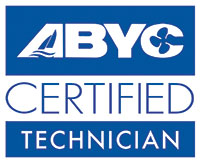Miami Boat Electrical Repair
Found 189 results
Best Electrical Service by Town in Miami
- Boca Raton
- Boynton Beach
- Coral Gables
- Coral Springs
- Dania Beach
- Deerfield Beach
- Delray Beach
- Doral
- Fort Lauderdale
- Fort Pierce
- Hallandale Beach
- Hialeah
- Hobe Sound
- Hollywood
- Homestead
- Jensen Beach
- Jupiter
- Key Biscayne
- Key Largo
- Key West
- Lake Worth
- Loxahatchee
- Miami Beach
- North Miami Beach
- North Palm Beach
- Opa Locka
- Palm Beach
- Palm Beach Gardens
- Palm City
- Pembroke Pines
- Pompano Beach
- Port Saint Lucie
- Riviera Beach
- Royal Palm Beach
- Stuart
- Vero Beach
- West Palm Beach
BOAT ELECTRICAL REPAIR IN MIAMI
HOW TO FIND THE BEST BOAT ELECTRICAL REPAIR IN MIAMI
The greater Miami area has a large number of marine electricians. Areas like Fort Lauderdale, Coral Gables, and up to Jupiter will also have plenty of electrical repair shops. Given that the boating economy is so large, it can support narrow specialization, so you will often find repair ships that only do electrical and nothing else. Qualification will be important in the Miami area just like anywhere else and the gold standard for certifications is the American Boat & Yacht Council (ABYC). Make sure that the shop you are working with has the actual electrical certification and isn’t just merely an ABYC member. Another encouraging sign as to quality of service is a membership to the Marine Industries Association of South Florida. Again, given that the boating economy supports specialization in south Florida, you are better off going with a dedicated marine electrician rather than a jack of all trades repair shop. In south Florida, the best place to begin your research is online and also ask your friends that have similar boats to yours. Check out boat electrical repair near you for more information (follow the link and enter in your city).
DIY BOAT ELECTRICAL REPAIR
Here are some general tips to remember if you are planning to repair electrical problems yourself. We do not recommend this for inexperienced hand. Only experts should tackle an electrical issue, otherwise you should hire a trained professional.
-
Bundle wires with care: Never mix AC and DC wires in the same bundle and also do not place too many DC wires in the same bundle because they generate too much heat. Be sure to run the bundles as high as possible in the boat and make sure that the wire bundle is not in an area where it will be rubbed against and the wires could chafe. A note on chafing - if you want to reduce the chances of wire chafing then the best thing to do is use conduits for bundling. If you don’t have conduits, use spiral wrap and wire ties and/or clamps every foot or so. For bus bars and terminal block screws, never place more than 4 wires on them and always keep them covered.
-
DC ground wire is now yellow: DC has two wires and AC has three. The old DC ground wire used to be black. To distinguish between DC ground wire and black AC wire, the new ABYC code uses yellow instead of black for DC ground. DC wiring now uses red for positive and yellow for ground, while AC systems use black for hot, white for neutral, and green for ground.
-
Wire bilge pump directly to battery: If you don’t want a hull full of water, then make sure you bypass the main battery switch for the bilge pump. You want to go directly to the battery so that when you turn off the main switch the pump is still getting power. This way, the bilge pump can run periodically while the boat is sitting idle in the water.
-
Electrical current degrades zincs: If you notice your zinc anodes disappearing very quickly, then this means that there is electrical current in the water nearby. It could be exposed wiring from the dock or from another boat. You should take immediate action to get to the bottom of it.
-
Secure the battery: Boats are not an ideal place for a battery with all of the vibrations and pounding from the water and engine. Make sure you have your battery in a marine grade battery box and that it's securely fastened in the recommended compartment. The best batteries to use these days are still flooded cell lead-acid batteries. Keep an eye on the battery charge and only top off batteries with distilled water if you notice the cells getting low. Also, make sure you install the right size fuses between the batteries and the switch and never turn the master switch while the engine is running.
-
Multimeters: You’ll need to buy a multimeter to troubleshoot electrical circuits and make repairs.
COST OF MARINE ELECTRICIAN IN MIAMI
The cost to hire a marine electrician is highly variable depending on the scale of the issue. Obviously, the more electronics you have on the boat, the more expensive and extensive your electrical system will be. For simple electrical issues the average cost is about $300 but for more complex problems the cost can range up to $900. Big installations could be in the thousands of dollars. If the electrician needs to travel to the boat, then be sure to ask about travel costs. We would avoid hiring anyone too far away that would be expensive from a travel standpoint given the high concentration of service providers and likelihood that there is someone closer who can help.


